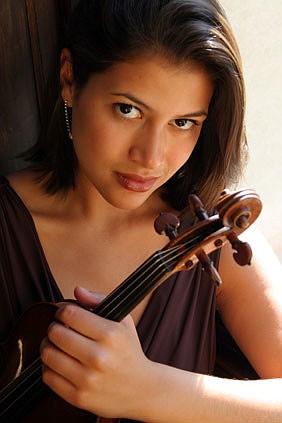- April 25, 2024
-
-
Loading

Loading

There was an electricity pulsing through the Opera House Saturday evening as the Sarasota Music Festival, with conductor Larry Rachleff, presented its second symphony concert and proved there’s a certain connective tissue that links music and musicians when the talent, attitude and aptitude are there.
Although this program was considered “symphonic,” there was one work on the program — Richard Strauss’ The Serenade, Opus 7 — that was very much a chamber work. Led by Rachleff, faculty artists Leone Buyse, Allan Vogel, Charles Neidich, Frank Morelli and William Purvis, along with their student counterparts, performed the work, scored for pairs of flutes, oboes, clarinets and bassoons, plus four horns and a contrabassoon. This may be an early work by Strauss but it encompasses all the beauty of his later operas and fragments of his songs; ravishing in sound but as pure and perfect as the Mozart “Gran Partita” that may have inspired it. Even though it is a work for only 13 instruments, like so much of Strauss’ music, it is grand in both perception and concept. And it was played that way.
Berlioz’s Overture to “Beatrice and Benedict,” the work that opened the program, is colossal in every way. It offers difficulties for players three times the age and experience of the students in the Sarasota Music Festival but, with Rachleff’s clear leadership, triplets were tossed off with ease and, best of all, precision and pitch were perfect. As we said last week, Rachleff knows how to treat silences, and Berlioz wrote rests into this score that, in unmusical hands, could sound like conclusions rather than connections.
Singing was what these young musicians did with their instruments. With Rachleff at the helm, they breathed through phrases, connected ideas and brought out the important themes without overwhelming inner voices.
The same magic happened in Barber’s gorgeous violin concerto. Elena Urioste, who was, herself, a student at the Sarasota Music Festival just a few years ago and has since gone on to solo with major orchestras from the New York Philharmonic to the Chicago Symphony, was the dazzling but sensitive soloist. She produced a singing line from her instrument, from the achingly beautiful opening theme to the never-ending perpetual motion of the finale. In between, the words to James Agee’s exquisite poem, “Sure on This Shining Night,” set by Barber in a most famous song, echoed through Urioste’s playing. Barber borrowed from his own song (“Sure on This Shining Night” is from his Opus 13 and the violin concerto is Opus 14). The middle movement has fragments of the poem sifting through the notes: “Sure on this shining night I weep for wonder, wandr’ing far alone, of shadows on the stars.” It’s all there, and with Urioste, the orchestra and Rachleff singing the concerto, it was truly shining.
Mozart’s Symphony No. 41, the “Jupiter,” concluded the program in grand style. Rachleff conducted it in a way that showed its link to the future. Beethoven’s architecture and vertical voicing is firmly imprinted in Mozart’s last symphony. They’d heard each other’s music by then, and they were duly impressed and influenced.
Here, again, Rachleff breathed through the rests so the silences were incorporated into the music. This was a student orchestra playing like experienced professionals: tapering phrases, building crescendos and singing through lines with an understanding far beyond their years. Perception doesn’t always keep pace with technical talent, but Rachleff managed to bring both together. And, for an encore, he gave us 45 seconds of what he said was an incredible moment in music: repeating the double fugue and canon with five voices in the coda, bringing everything in the “Jupiter” together as only Mozart (with a little help from Rachleff, the inspiration of youth and, possibly, the muse of Beethoven) could do.